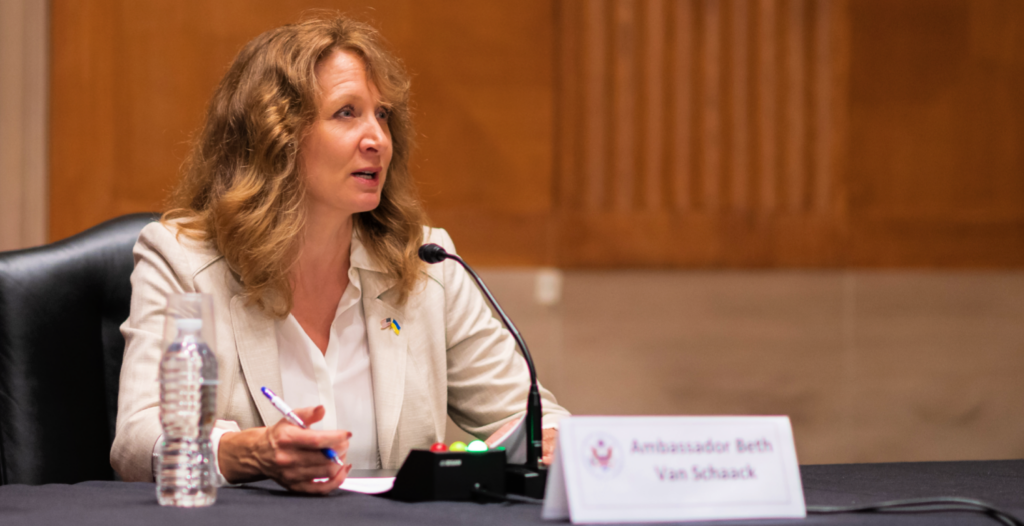International Law

Hamas’ Hostages, Putin’s Prisoners, and Freeing Inte...
Oct 25, 2023The practice of seizing hostages and political prisoners, as well as actively terrorizing civilians is a constant displayed by Hamas in Israel and Russia’s war against Ukraine. To highlight issues […]
Russia’s Swiss Enablers
May 05, 2022Long known as a destination for war criminals and kleptocrats to stash their plunder, Switzerland is a leading enabler of Russian dictator Vladimir Putin and his cronies. After looting Russia, […]

Russian War Crimes in Ukraine
May 04, 2022Well-documented Russian bombings and missile strikes in Ukraine have decimated hospitals, schools, and apartment buildings, including a theater in Mariupol where hundreds of children were sheltering and the Kramatorsk rail […]
Helsinki Commission Briefing to Examine Swiss Enabli...
Apr 29, 2022WASHINGTON—The Commission on Security and Cooperation in Europe, also known as the Helsinki Commission, today announced the following online briefing: RUSSIA’S SWISS ENABLERS Thursday, May 5, 2022 10:00 a.m. Register: https://ushr.webex.com/ushr/j.php?RGID=r72f85e0c40a09b609b328a9481f54063 […]
Chairman Cardin Emphasizes the Importance of the Glo...
Mar 23, 2022Madam President, reserving the right to object to the request from the Senator from Idaho, it is my understanding that the Senator’s modification would not include provisions that were included […]
Helsinki Commission Welcomes Passage of Trap Provisi...
Dec 15, 2021WASHINGTON—Helsinki Commission Chairman Sen. Cardin (MD), Co-Chairman Rep. Steve Cohen (TN-09), Ranking Member Sen. Roger Wicker (MS), and Ranking Member Rep. Joe Wilson (SC-02) today welcomed the passage of the […]
Co-Chairman Cohen, Ranking Member Wilson Introduce T...
Jul 30, 2021WASHINGTON—Helsinki Commission Co-Chairman Rep. Steve Cohen (TN-09) and Ranking Member Rep. Joe Wilson (SC-02) yesterday introduced the Transnational Repression Accountability and Prevention (TRAP) Act in the U.S. House of Representatives. […]
OSCE SHDM on Digital Technology and Human Rights
Jul 26, 2021OSCE Conference on Risks and Opportunities Posed by Digital Technologies On July 12 and 13, 2021, the OSCE Office for Democratic Institutions and Human Rights (ODIHR) held the third Supplementary […]

